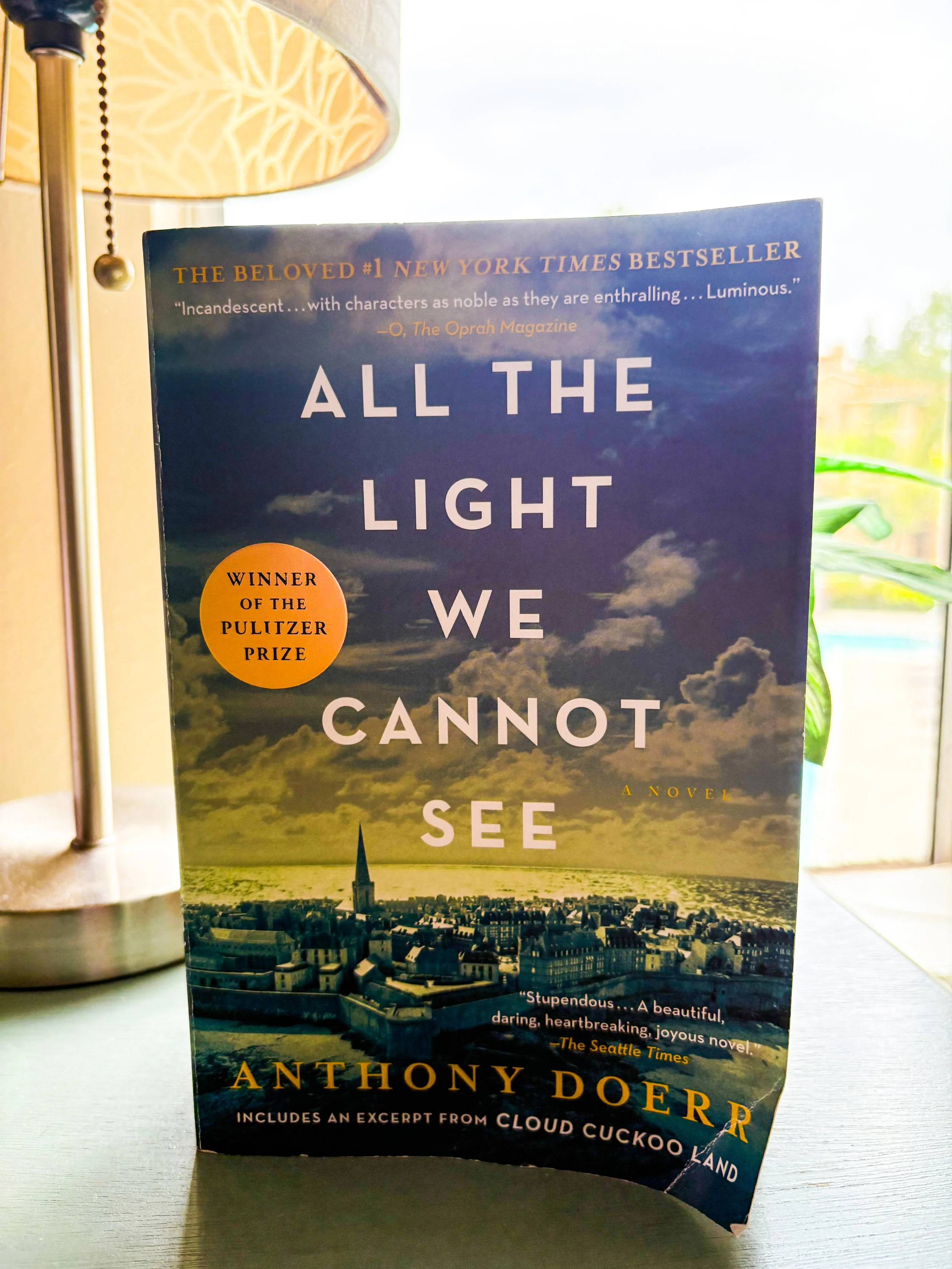All the Light We Cannot See
All the Light We Cannot See Book Review by Anthony Doerr
This probably wasn’t the lightest novel to choose to read on my honeymoon, but at least it was enjoyable. Lightest both in terms of girth and weight (my suitcase could barely fit anything else), but also in terms of subject matter.
All the Light We Cannot See is a novel set during the rise and fall of WW2. It mainly follows two main characters, Werner, an incredibly smart German orphan who finds himself at one of Germany’s elite school where they train him in the Nazi ideology, and Marie-Laure, a blind French girl who finds her world thrust upside down with the German invasion of Paris (her home) and the subsequent events that follow.
Heavy, right?
I don't usually love war books, not because they’re not interesting or important, but because they sit heavily on my heart. All the Light We Cannot See was not an exception.
In addition to Werner and Marie-Laure, we see other characters and their motivations, Marie-Laure’s father, her uncle, Werner’s sister, a man on the hunt for a valuable jewel called the Sea of Flames.
All these characters intertwine with Werner and Marie-Laure, weaving an inextricable web where even the smallest choices create a large, rippling effect for others.
All the Light We Cannot See also experiments deliberately with time. I tried to explain the plot to my now husband on our trip and found that it was difficult to relay.
The novel starts with a chapter centering around Marie-Laure hiding in her home in Saint-Malo as bombs and fire erupt around her. You then transition to Werner and his fellow German soldiers who are shooting off said bombs.
Then, in the very next chapter, Marie-Laure is five years old, Werner is a child in a rundown orphanage and the war is ten years off.
Instead of taking the whole novel to reach back up to the climatic moment of the opening chapter, Doerr continues to alternate between these two timelines, effectively making a future present and a past present.
These two presents eventually meet two-thirds of the way through the novel. From there, the book becomes chronological until the end.
I’ve never read a book with an intricate timeline that worked as well as this one did. While it was hard to elucidate upon, it was never confusing to read about.
Doerr did an excellent job of maintaining clarity while also crafting invisible threads that pulled tighter and tighter and tighter until it formed a knot towards the end.
Other than the pacing and the characters, the book was beautifully written. Very introspective and thought-provoking without being pretentious or verbose.
It contained a multitude of historical details without making me feel like I was reading a textbook (an issue I have with a lot of historical fiction).
I could get into the nitty-gritty of the plot, but you probably already have a decent idea of what it contains and how it ends. Chronicling the lives of Werner and Marie-Laure during this intense time of human history was a fascinating read, especially seeing the juxtaposition between them.
Doerr’s decision to include a main character who was blind was also an interesting choice that gave this book a fresh perspective that was much needed amongst the saturation of books similar in nature to All the Light We Cannot See.
Including the characters, timeline, treading lightly of burdensome subject matter, and the prose itself, this novel was one that I ingested from the beginning and stayed riveted throughout the entirety of the story.
Recommendation: As a whole, I enjoyed All the Light We Cannot See, but definitely believe that there is a time and place to read it. Some of the details are horrific to imagine, let alone realize that they occurred. Tread with caution, but also don’t miss out on a great book with a lot to offer and teach if you are up for it.
Score: 7/10







